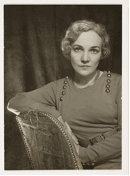 The Center for Common Sense Counseling
The Center for Common Sense Counseling
How to Pray Without Ceasing
 Paul tells us to pray without ceasing. (1 Thessalonians 5:17). The average person cannot pray without ceasing. The average person can hardly bear a second of reality without escaping or being drawn into some distracting thought or external tease.
Paul tells us to pray without ceasing. (1 Thessalonians 5:17). The average person cannot pray without ceasing. The average person can hardly bear a second of reality without escaping or being drawn into some distracting thought or external tease.
Only the meditator can have the kind of prayerful stance or prayerful attitude that lends itself to ever being mindful of God and wishing that His will be done in every moment. Not by willing, not by forced concentration, but by a mindset and commitment.
The meditator has three things in his favor. First, he had been repented of his wrongs and is now a friend of conscience. He welcomes realizations, insights and subtle promptings from the Spirit. This he is ever attentive to his intuition, and when he falls into excessive thought or finds himself being pulled into some distraction, he becomes aware that this has happened, and pulls back.
Secondly he knows that of himself he can do nothing. He knows that his egotistical strivings and schemes always backfire and have no love in them. So he waits upon the Lord. His attitude is one of wanting to know what to do, wishing to do the right thing but realizing that he does not know what the right thing is.
This attitude (or mindset) is tantamount to praying without ceasing.
He also wishes well for others, bears goodwill, and looks for opportunities to overlook rather than judge, and for opportunities to speak the truth, perhaps awakening another soul who is receptive. This is the mindset of love.
Also it says in the Bible that God knows what we need before we ask Him. The person in the aware meditative state of mind having a mindset of "let go and let God," has the patience to wait to see how thing will unfold as the God Lord intends.
We are told in the Bible that the Spirit intercedes for us. Likewise, the Spirit also helpeth our infirmities: for we know not what we should pray for as we ought: but the Spirit itself maketh intercession for us with groanings which cannot be uttered. Romans 8:26.
Thus the meditative person, with his marvelous humility and a calm resolve to wait upon the Lord, does not interfere with the activity of the Spirit.
What is even more wonderful is that Christ is at the right hand of the Father and intercedes on behalf of those who come to God through Him. We read:
"But because Jesus lives forever, he has a permanent priesthood.
Therefore he is able to save completely those who come to God through him, because he always lives to intercede for them."
Hebrews 7:24 and 25
"Who is he that condemns? Christ Jesus, who died– more than that, who was raised to life— is at the right hand of God and is also interceding for us."
Romans 8:34
The meditator, being aware of these things, has now all the more reason to let go of willfulness and ambitious study and thinking—freeing himself up to be a conduit for more light. The less he does, the more happens.
Instead of trying to figure things out, he wonders. And this wonder is tantamount to a wordless inquiry to God.
Instead of spending time in vain imaginings, he snaps out of them, and spends more time in the present moment, enjoying God's great green earth, and awaiting realizations and insights that spring from the influx of light that is downloaded with each meditation.
 There is less to do and more time to wonder and discover. No longer does he feel pressure from time, but instead he enjoys the bounty of the ever present now.
There is less to do and more time to wonder and discover. No longer does he feel pressure from time, but instead he enjoys the bounty of the ever present now.
There will be moments of special supplication for others, sometimes he may be moved to read a psalm out loud or say audibly to himself "thank you, dear heavenly Father." There will be grace before meals, and littlie moments of conscious calling upon God during the day.
But for the most part, the attitude of wonder, the desire to live in God's Presence and to do His will, and the quiet knowing that God is near will suffice. And most of all a life well lived and dedicated to God is itself a living prayer.
What follows is an article I wrote intended for the person who has asked me "how do I get closer to God, why don't my prayers seem to be answered, or why don't I feel God in my life?" The article assumes that the questioner has not been meditating with our meditation.
The article is intended for the sincere person who wants to pray better but does not know how. In the article I make the case for meditating, and for how the proper meditation helps a person find a prayerful state of mind, one that is open to influx from the Lord, and not lost in thoughts and imaginings.
The article is also of benefit to the novice meditator who wishes to understand the link between meditation and prayer, and why meditation helps a person pray better. The article is also useful for someone who wants to explain the proper meditation to others. Many people look askance at the idea of meditating but understand and can relate to "prayer."
The problem with upset
It says in the Bible, "Be still and know that I am God" (and you are not god). Because there are so many things nowadays that pull a person away from stillness and awareness, it is the author's opinion that the sincere seeker must practice our Christian prayer meditation.
Here is an analogy. It's hard to focus and to pray when you are sick and running a fever. You get lost in repetitive and disconnected images and feverish dreams in your mind. Likewise, when you are upset about something, you tend to get lost in images and a flow of thoughts under the influence of emotion. When you are worried, angry, resentful, or depressed—you tend to get lost in a jungle world of thought, almost like when you are sick.
Most of us are upset all the time. Something is bothering, worrying or upsetting us. Then we relive the past—thinking about what "he said" or "she said"—or scheming for the future.
In other words, your soul is caught up in the downdraft of swirling thoughts and emotions. Never are you still in the present. But it is only in the stillness and in the present that you can find the Presence of God.
Lost in the mental fog, it is hard to understand clearly what is going on. You get confused. As things get more complicated, you tend to retreat into the mind to daydream, fantasize, or get lost in memories. Most people use music, texting, and entertainment to help distract them from their problems.
So whether you are lost in the parading images in your mind or the images and sounds of entertainment—either way you are not in the present moment, bravely and reasonably dealing with issues. So the longer you hide, the more out of control your life gets.
Then you tend to over react to everything going wrong, and that only compounds problems, as you say and do the wrong thing under the influence of emotions.
Whatever all this worry and scheming is about, it definitely is not of faith. Worry is the opposite of faith. It is a false faith. The ego thinks that it can change things for the better by worrying. It's like gripping the armrests on the plane when it is taking off or landing as if it could help steer the plane.
When your mind is awash with delusions and emotional daydreams, when you are worried, upset or even just irritated—you cannot pray properly.
Basically, you cannot pray.
Sure, you can mouth the words or recite some rote memorized prayer, but it is not effective prayer. Remember what Christ said about this:
"But when ye pray, use not vain repetitions, as the heathen do: for they think that they shall be heard for their much speaking. Be not ye therefore like unto them: for your Father knoweth what things ye have need of, before ye ask him."
It says in the Bible "Be still and know that I am God." When your mind is running away with worries doubts and fears, daydreams and schemes, it cannot be still. Your soul is basically carried along with the swirling images, like laundry circling around in a clothes washer.
Perhaps that is why Christ warned us to take no thought for the morrow (planning, scheming, and worrying about tomorrow).
"For this reason I say to you, do not be worried about your life, as to what you will eat or what you will drink; nor for your body, as to what you will put on. Is not life more than food, and the body more than clothing? "Look at the birds of the air, that they do not sow, nor reap nor gather into barns, and yet your heavenly Father feeds them. Are you not worth much more than they?" Matthew 6:25
He knew that we cannot commune with God when our ego is trying to exert its will over tomorrow and looking to mental imaginings for answers. Perhaps that is why Paul tells us to not worry, but to pray instead: Be anxious for nothing, but in everything by prayer and supplication with thanksgiving let your requests be made known to God.
Philippians 4 :6
Of course, if you are already worrying, then telling yourself not to worry won't do any good. All you will do is worry about worrying.
When we have been emotional, we find it impossible to focus. After an upset at home, you might just sit in front of a book or magazine, and though your eyes are going over the words, you are not really following with your mind. You are just going through the motions, and won't even remember what you read. So when you are all upset or excited and you pray, it's the same thing. You mouth the words but there is a disconnect. You mouth the words but your heart is not in it. You lack presence of mind.
Admittedly, some people use emotion to focus, and it works for a while. But the tension, the striving, and the "controlled" anger take their toll, draining and damaging the body and fatiguing the mind. The harder you try, the more enticing those tension-reducing temptations become. But you should not be becoming stressed and tense in the first place. After years of striving, struggling and trying, many people burn out, become chronically fatigued, or shut down.
Of course we all know that getting upset is not good for us. It stresses our body and when we are upset we say the wrong thing or do the wrong thing. But now you also know that it interferes with prayer.
You also know that it would be better to not get upset in the first place. In fact many of us try not to get upset. We begin the day saying "today I am not going to get upset," but soon after we go out into the world, something upsets us and then the whole cycle begins again.
So now you know another reason why you should not get upset or emotional. When you are angry, upset, irritated, worried, unhappy or resentful, you can't pray effectively.
But when you are upset, emotional, unhappy, nervous, anxious and so on—that is when you need God most. Understand this—if you had found a rapport with God, you would not be getting upset in the first place. But you are upset! You are getting lost in the images of your mind. Fortunately you are not without a lifeline. If you could learn the technique of standing back from worries, doubts and fears, your soul would have some distance and a way of being still despite the negative thoughts. Read on, and you will learn of the Christian meditation.
The Problem with Pressure
We all know that we are supposed to be reasonable, forgiving and patient. But it is hard to do so when under pressure.
For example, the Christian learns wonderful Biblical principles in church, Sunday school, or listening to
Christian radio, but when under stress, we become upset or angry. We then often say the wrong thing or feel the wrong thing (resentment). Then we escape into thinking, where we try to rearrange the past, excuse our failing, or worry and scheme about the future.
When we keep failing to apply the principles that we love, we become frustrated and angry at ourselves. But all this does is add another layer of upset.
At the Center for Common Sense Counseling, we teach the "how" of remaining patient and more forgiving.
By learning the simple technique of how to remain centered and calm, we are pre-armed with Godly grace. It is anger and upset that wash away patience and reason.
In other words, we can learn how to hang onto our patience by not becoming upset. We can hang onto a forgiving attitude by not letting stress sneak up on us and render us judgmental.
 It is spiritual discipline that you need. But not the type that comes from suppressing anger, or putting on a good face with seething resentment underneath. It is the discipline of learning how to get centered and then from that calm center of dignity clearly seeing your need for patience.
It is spiritual discipline that you need. But not the type that comes from suppressing anger, or putting on a good face with seething resentment underneath. It is the discipline of learning how to get centered and then from that calm center of dignity clearly seeing your need for patience.
When the stressful situation arrives (often involving a delicate moment with your spouse, parent, or child), you will be able to meet the moment with grace, instead of reacting with upset and coming unglued.
In simple terms, if you could learn the secret of not getting upset, you can be calm, composed, truly loving people. Now many of the good deeds that you do for others are done out of guilt, as a compensation for the love you do not really have inside, and your composure is actually suppression--pretending to be calm on the outside. Wouldn't it be better to find the inner font of love, so that your actions could flow from grace and true concern instead of pretense?
In simple terms--it is easier to be an authentic, kind, and courageous person when you are not upset. Learn the secret of staying calm in the face of stress with the help of the simple Christian prayer meditation. Then you will welcome instead of resenting life's challenges. Each stress gives you the opportunity to practice patience and grow in character. Paul said:
"My brethren, count it all joy when ye fall into divers temptations; Knowing this, that the trying of your faith worketh patience. But let patience have her perfect work, that ye may be perfect and entire, wanting nothing." James 1: 2-4
The solution
If you suffer from: nervousness, mental fog, easily distracted, inability to concentrate, or anxiety—You simply must learn how to be still. The energy of your own striving pulls you from stillness and involves you in thought stuff. Even the effort to still your thoughts or blank your thoughts is another involvement. The soul itself must be still, apart from thought.
When we try to focus or try to do anything, even trying to quiet our thoughts, we end up struggling and become fatigued. Struggle and trying are themselves an error. Then it is just too easy to slip into daydreams or some comforting music, alcohol, drug or distraction fix.
We also make the mistake of trying to deal with our own guilts, which only strengthens them and makes us weary. You cannot forgive yourself.
You need God's forgiveness and guidance. But you cannot find these in daydreams or external words or rituals.
Nor can you find them in manipulation of thought. You discover them when your soul is still and aware in the Presence in the present.
As a matter of fact, I firmly believe that the meditation is the most important thing I have to offer.
I know that many of you came for chat to ask a question, or perhaps to listen to audio.
 But many of you are searching for answers. You are looking for purpose in life. You want to know why you are here. You want to have better relationships, and you want happiness.
But many of you are searching for answers. You are looking for purpose in life. You want to know why you are here. You want to have better relationships, and you want happiness.
Believe it or not, the proper application of the meditation exercise may be of help because it permits you to get out of negative thinking, and it helps you get in touch with your calm center of dignity. From there you can flow effortlessly and move toward positive goals that you realize for yourself.
Now that you know about why it is hard to pray when we are upset and lost in daydreams, perhaps you can see why you need to learn how to get out of those worries and fantasies. You will then be able to stand back and observe thought instead of being that thought. You will discover that you are not your thoughts. You are the observer of thought. Your soul, standing fearlessly aloof, observes the thoughts without being stained by them.
Most of your thoughts are not your own anyway. When you begin to meditate, you will discover that the thoughts you always though were yours were from another source. A source that does not have your best interest at heart.
When the soul is no longer guilty for escaping from the Light, and no longer guilty for consorting with impure thoughts, it is shriven and is now capable FOR THE FIRST TIME of being penitent, of praying in the spirit, and of understanding the nature of your troubles.
When we fall into the thought stream and follow those thoughts (which we think to be our own), we are deceived and led into error. Our life becomes a mess. And then seeing our mistakes, we cannot bear what we see, so we escape into hiding in thoughts again, only to set ourselves up for another round of mistakes, getting upset by what we see, and again hiding.
This cycle of error and upset has to stop, and it will, if you can learn the simple art of meditating for distance from the misleading and seductive thoughts. You will then find yourself in command, like a general in the grandstand watching the thoughts parade by.
Your soul will once again rule in the body, and your body will now, having a kind and rightly aligned master, also benefit from the newfound grace. You will be able to settle down, let go of stress, and begin to function from your own command center instead of being a wind up toy.
May I recommend our classic 4 part meditation? If you prefer, you can instead start with the free easy meditation, then perhaps "graduate" to the advanced four part meditation when you are ready.
Be anxious for nothing. But in everything, by prayer and supplication, with thanksgiving, let your requests be made known unto God. And the peace of God which surpasses all understanding will guard your hearts and minds through Christ Jesus. Philippians 4: 6 and 7
Praying always with all prayer and supplication in the Spirit, and watching thereunto with all perseverance and supplication for all saints; Ephesians 6: 18
But let him ask in faith, nothing wavering. For he that wavers is like a wave of the sea driven with the wind and tossed. For let not that man think that he shall receive any thing of the Lord. A double minded man is unstable in all his ways.
James 1: 6 to 8
The light of the body is the eye: therefore when your eye is single, thy whole body also is full of light; but when your eye is evil, thy body also is full of darkness. Take heed therefore that the light which is in you be not darkness. If thy whole body therefore be full of light, having no part dark, the whole shall be full of light, as when the bright shining of a candle doth give thee light.
Luke 11, verses 34 to 36
The spirit of man is the lamp of the LORD, Searching all the innermost parts of his being. Proverbs 20 27